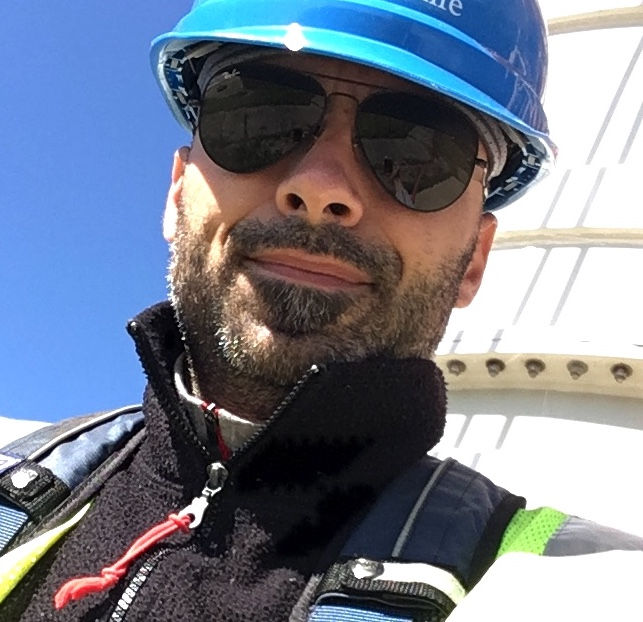University launches Water-Energy Nexus certificate program

Diego Rosso, associate professor of civil and environmental engineering at University of California Irvine and director of the university’s Water-Energy Nexus Center, conducts testing at DC Water (Washington, D.C.) for research. Photo courtesy of Rosso.
Water systems once were built under the assumption that the energy they needed to operate would be cheap and abundant. The design of most energy systems presumed the same about water.
Turns out, both are no longer true. Engineers today recognize that water and energy are connected in ways past generations couldn’t appreciate, said Diego Rosso, associate professor of civil and environmental engineering at University of California (UC) Irvine.
Rosso is director of the university’s Water-Energy Nexus Center, which has introduced a four-course certificate program that explores the complex relationship between water availability and energy production.
“College students generally study either water or energy,” Rosso said. This hybrid program is designed for working water and wastewater professionals as well as others interested in improving energy efficiency and optimizing water treatment, he said.
The first course in the series, Carbon and Energy Footprint Analysis, focuses on energy and greenhouse gas emissions in water and wastewater systems. “This class is important because it teaches students to quantify the energy and carbon footprint implications of every decision they make in a water or wastewater facility.”
Other courses in the graduate-level program address topics ranging from advanced biological and physical-chemical wastewater treatment processes, to sustainable energy systems.
Both professionals and employers have a great interest in the certificate, which receives funding from utilities and research centers throughout the world, Rosso said. “With projections that nearly 40% of the world’s people will live in areas with inadequate clean or usable water in the next decade, recovering precious resources from waste while finding effective ways to meet our power needs are vital areas of study that we are hoping to address with our program,” he said.
 The Water-Energy Nexus certificate program is the first step toward introducing a new Master of Water Engineering degree program for the entire University of California system, Rosso said. That master’s program, which is expected to offer both residential and online options, is tentatively scheduled to launch by 2020.
The Water-Energy Nexus certificate program is the first step toward introducing a new Master of Water Engineering degree program for the entire University of California system, Rosso said. That master’s program, which is expected to offer both residential and online options, is tentatively scheduled to launch by 2020.
— Mary Bufe, WEF Highlights
| Water and Wastewater Training Opportunities Featured in WEF Highlights
Whether you are a wastewater veteran in search of an online continuing education course or an entry-level employee aspiring to enter the water sector, colleges and universities across the country now offer coursework designed to help. The key is to find the program that works for you. Stay tuned to WEF Highlights for articles featuring these programs. Find the articles by searching for the keyword TrainingCourses. Know a program that you’d like to share? Send it to Jennifer Fulcher, WEF Highlights editor, at jfulcher@wef.org. |








June 21, 2018
Featured